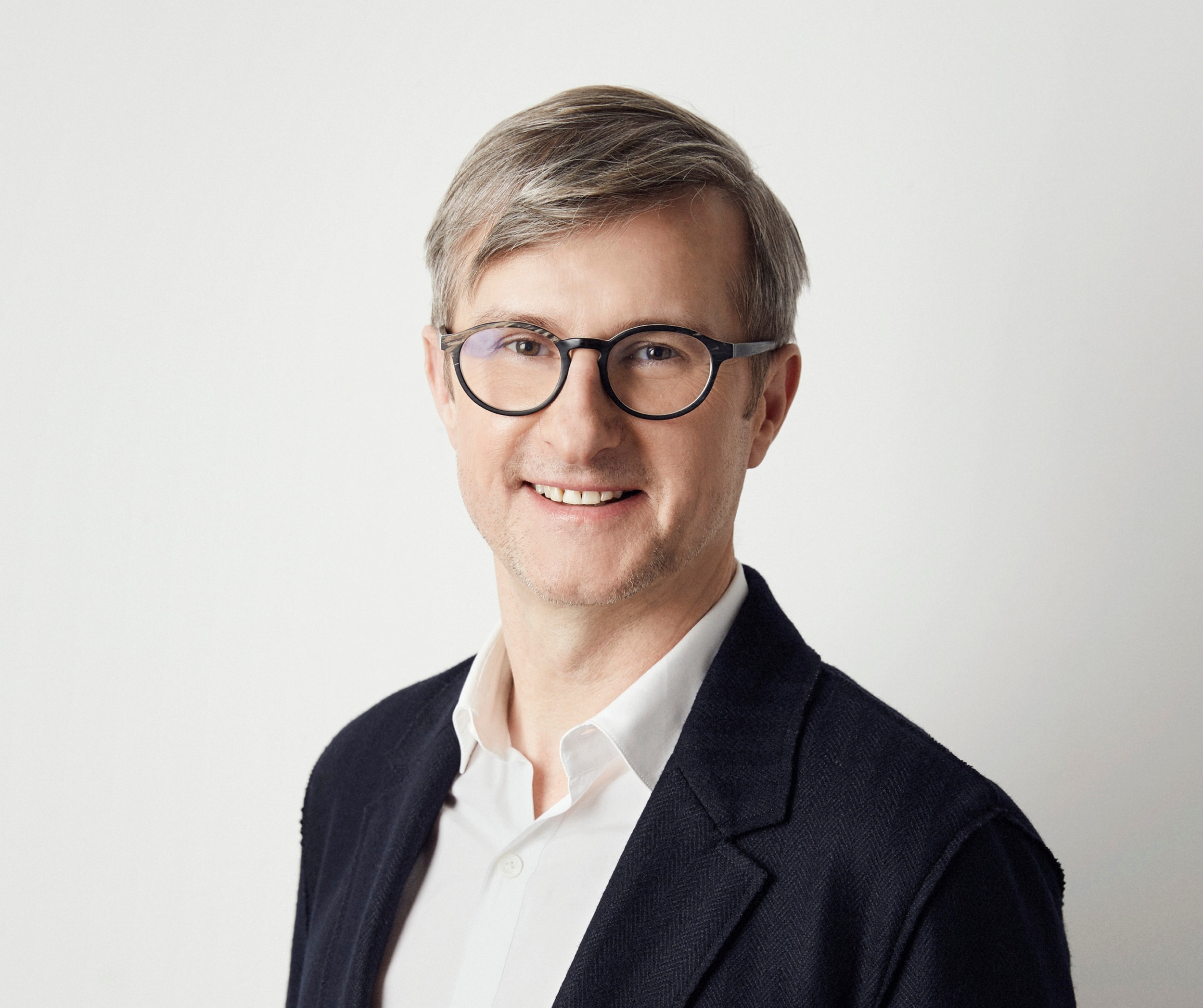1. Did you always want to be a CEO and what drove you?
I have always been fascinated by bringing together creativity and commerce, and how brands are built from that. The question made me reflect on my family and the various companies they ran from manufacturing to retail and the wholesaling of leather goods. My formative years were spent with business operations, marketing and design being very much part of conversation at the family dinner table. I think I must have absorbed all of this and been subliminally drawn to the role!
2. How did you land your first CEO role?
This is in fact my only CEO role. My career may have been quite different to other CEOs, having founded David Collins Studio with David Collins and built the brand from his living room. With a background in business studies and economics combined with a passion for architecture, fashion, and interior design I then became, in effect, an apprentice and assistant to David Collins. My role was to realise our ambitions to redefine luxury interiors. Over the course of a 25-year working relationship, we discussed how to develop my role and improve the business. Having worked my way up the ranks to Commercial Director and then Managing Director by 2013, we took external advice about how to best structure the leadership going forward. So this is possibly a unique situation, where I helped create the role and add a C-suite for the business. This was implemented when I appointed David Goodman as COO in 2015 and I took on the role of CEO and he joined bringing great experience of managing a luxury interiors practice.
3. What did you do to prepare yourself for the role and, in retrospect, what else should or could you have done to prepare better?
In any role with progression, the question is where others can add value and in turn allow you to delegate and step up - in my case, to look at goals and strategy. It is always good to question what you are doing to see if there are other solutions that allow other roles to grow. I think with hindsight the complexities of a business with offices in London, New York and Buenos Aires would have benefited from the CEO role and additional operational support a few years earlier. The operational challenges at the time involved three different companies in three separate countries with local employment and taxation issues, as well as managing remote teams in three time zones.
4. In what way/s was the role different from what you expected?
For me, it is not so much that the role is different than expected, but rather that the role has allowed me the unique opportunity to think about the bigger picture and focus on the external issues, such as being a brand guardian.
5. What were your greatest challenges early on?
I had to look at how the role would be communicated internally and externally. The opportunity to share the overall running of the business with the senior team did raise some challenges. For example, most of the team had not been exposed to financial planning or new business targets before so we had to find a language that they understood.
6. Did you have any internal challenges you had to overcome?
Whilst I wanted to be inclusive of the senior team and share the company vision, I had to be clear that whilst they were consulted and we had meaningful discussions, the final decision ultimately rested with me. I also realised that in any meeting it is difficult to switch between operational and strategic issues. I later found out that these areas use different parts of the brain, which makes complete sense.
7. They say that it is lonely at the top. Is this something you experience/d and how did/do you deal with it?
It has been useful to have a network of people with similar roles. Sharing experiences can be reassuring and make you realise that it is less about me as an individual but more about the dynamics of leading a business. I have also sought external support from business advisors, either on a project basis or in an ongoing coaching capacity, which has been very helpful.
8. What qualities separate out CEOs from other C-Suite executives?
The other C suite executives at David Collins Studio are involved more in the delivery and operations of their respective areas, with their reporting line to the CEO. In my experience, the CEO has an overview of the entire organisation and is responsible not only for current performance, but also for future strategy and direction. This means that in addition to the team leadership skills that one would expect, CEOs also need a combination of blue sky thinking and practical detail.
Whilst the other C Suite executives must focus on their own core activity, the CEO knits these functional areas into a harmonious whole.
9. What qualities does a CEO need to be successful specifically in the luxury sector?
An extensive knowledge of the luxury customer across various sectors is invaluable. A passion for quality and an understanding of the process to deliver luxury product or experience is also required - I developed these by being inquisitive and obsessive about details. A CEO must then instil this knowledge from the top down, into the values of the teams responsible for bringing the thinking to everything they do.
10. What advice would you give someone who either aspires to or is new in a CEO role?
I would say embrace an open and approachable working culture to engage with your team. Try not to procrastinate when making decisions; I found it is as much about deciding at the right time as the decision itself. Taking action provides valuable lessons that enables you to evolve.
www.davidcollins.studio






